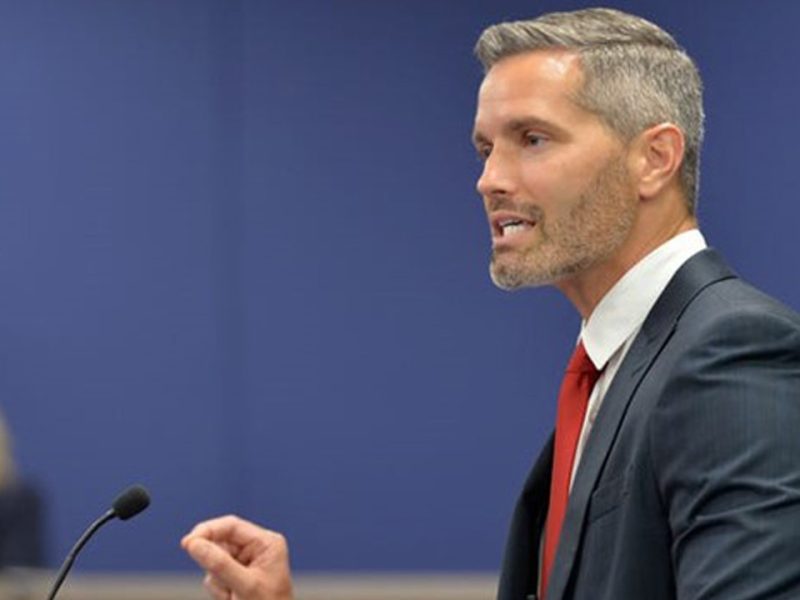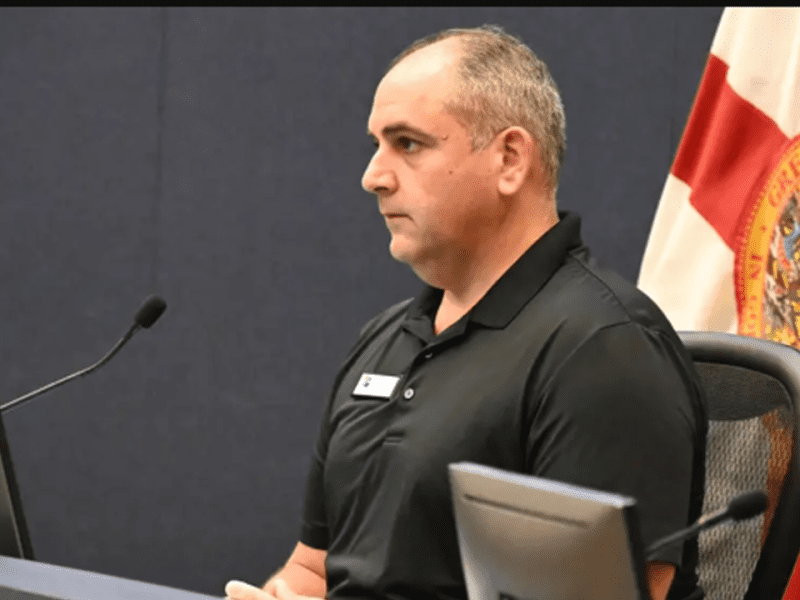
Why did Florida pick just one publisher for math elementary textbooks? A closer look at the controversy.
South Florida Sun Sentinel | By Scott Travis | April 26, 2022
When the state of Florida rejected all but one publisher of elementary math textbooks this month, many people wanted to know why.
The state Department of Education is rejecting “publishers’ attempts to indoctrinate students” with topics such as “critical race theory” and social-emotional learning, it said in a news release on April 15, coinciding with the same conservative approach backed by Republican Gov. Ron DeSantis.
The only winning company for K-5 math, Accelerate Learning, had been rejected by some school districts in the state because it didn’t offer a print version.
Since then, the Florida Democratic Party, as well as some community members, have questionedwhat, if any, political influence was wielded, and how it could tie into Glenn Youngkin, a Republican who was elected governor of Virginia in November.
Here’s a look at what’s known about Florida’s controversial move to reject dozens of math textbooks.
Which publisher prevailed?
Among critics’ questions is whether the only winning company, Accelerate Learning, is a political donor to Gov. Ron DeSantis.
The South Florida Sun Sentinel found no donations to DeSantis or his political action committee in 2018 or 2022 from Accelerate Learning, its equity firm owner or executives from the two companies.
Florida Democrats also raised questions in a news release about the company’s “deep ties” to Glenn Youngkin, a Republican who was elected governor of Virginia in November.
Youngkin is a former co-CEO of the Carlyle Group, which got the majority share of Accelerate Learning in 2018. He stepped down in September 2020 as he started planning for his political career. A filing showed he owned 1.9% of the company’s stock, Bloomberg reported in August.
His platform for governor included opposition to critical race theory, a legal concept that conservatives view as teaching children to feel guilty about their race or to hate America.
Kobie Christian, a spokesman for the Florida Democrats, said the party hasn’t identified direct ties between DeSantis and the textbook company, but it is asking questions.
“Our concern is that Gov. DeSantis is putting divisive politics ahead of Florida families,” Christian said in an email.
Jared Ochs, a spokesman for the Department of Education, dismissed the criticism.
“We have no idea what the reference to another Governor in another state is about — literally none — and it has zero bearing on our work in Florida,” he said in an email.
Ochs said the department has been clear about what content caused certain books to be rejected, adding that publishers are able to appeal.
Officials from Accelerate Learning couldn’t be reached despite attempts by phone and email Friday and Monday.
Supporting Black Lives Matter movement
Despite Youngkin’s past involvement with the company, there’s little evidence that Accelerate Learning holds the same conservative educational views as DeSantis.
The company’s website includes extensive statements on diversity, equity and social-emotional learning.
“Our nation’s black communities have long faced the repeated, harmful effects of systemic racism within the justice and education systems,” the company’s diversity statement says. “Recent events coupled with the Black Lives Matter movement have brought these issues to the forefront, causing individuals, companies, and the nation as a whole to reflect on and examine their own role in the system.”
The statement says it will “introduce additional employee trainings, thoroughly examine our current business and talent-recruitment practices.” The company says it has matched employee donations to Black Lives Matter, NAACP and other social justice organizations.
Those philosophies run counter to moves by DeSantis, which included the “Stop the Woke” law he signed that says employer diversity trainings can’t make white people feel guilty.
DeSantis also has signed an anti-riot bill that opponents saw as anti-Black Lives Matter legislation. The law was blocked by a federal judge in September.
Why did the state reject so many textbooks?
Most of Florida’s rejected textbooks didn’t address racial issues, but many did reject books that included social-emotional learning, a review by the New York Times found.
The concept of “social and emotional learning” is popular in schools, and supporters view it as a way to help students manage their emotions, set goals, show empathy for others and make responsible decisions. But critics see it as another way to slip in race-based lessons.
Sample materials found that Accelerate Learning textbooks “tend to include fewer overt references to feelings or emotions, but they do emphasize, in some activities, the importance of a student’s mind-set or attitude toward math,” the New York Times reported.
The state requires every book in grades K-5 to meet its standards in order to get approved.
Publishers’ rejected textbooks can be revised
While Accelerate Learning was the only one that met that criteria, New Jersey-based Savvas Learning was close, with only its second-grade textbook being rejected, according to a state list.
:quality(70)/cloudfront-us-east-1.images.arcpublishing.com/tronc/6GM47G6Y7ZAARKCE6ANFFSKOMU.PNG)
Many districts, including Broward and Palm Beach counties, selected Savvas for its K-5 math books.
Nicole Mancini, acting chief academic officer for Broward schools, said Friday that she’s been told Savvas only needs to make a few small changes and should get approval soon.
A Savvas spokesman told the Sun Sentinel last week that “once we obtain additional information from the state as to the specific reasons why” certain books were rejected, “Savvas will work toward an appropriate resolution.”





